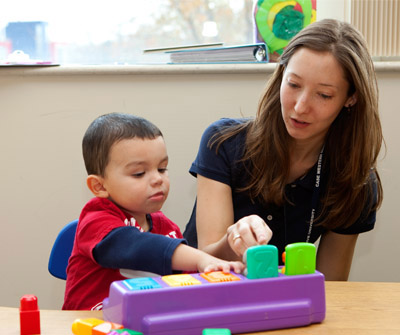The number of people in the United States diagnosed with diabetes has risen to more than 50 percent in the last decade. If you’re one of the 30 million Americans with diabetes, take note!
Research indicates that people with diabetes are more than twice as likely to develop hearing loss compared to those without the disease. The rate of hearing loss is 30 percent higher for the 84 million adults in the U.S. who are prediabetic compared to those with normal blood glucose levels.
Read More
Tags:
Audiology,
Hearing,
Hearing Loss,
"ears"
Everyone uses their vision to support their hearing. For example, if we see lightning, we know there will be thunder, or if we see something fall, we know it will make a sound. Even without sound, we can watch a football game and often “see” what an unhappy coach is saying to a player who fumbled the ball.
Read More
Tags:
Communication,
Hearing,
Hearing Loss,
"ears"
Minerals are in the foods we eat and play a vital role in our overall health and proper body function. Many of us may be aware that calcium builds strong bones and teeth, and that zinc helps with boosting the immune system (think Cold-EEZE cold remedy). There are even some minerals that are critical elements for protecting your hearing health.
Read More
Tags:
Audiology,
Hearing,
Hearing Loss Prevention,
Hearing Loss,
"tinnitus",
"ears"
Stroke is a leading cause of long-term disability in adults, and the fifth leading cause of death in America. Every 40 seconds, someone in the U.S. will experience a stroke, and nearly 800,000 Americans will have a stroke this year alone.
Below are 10 common health factors that attribute to having a stroke and how to reduce your risk of experiencing one:
- Hypertension
Linked to 48% of stroke-related incidents
Hypertension is the single most modifiable risk factor. Make sure to have your blood pressure regularly checked!
Read More
Tags:
Stroke
There aren’t any magic tricks that we can use to prevent all tantrums, but there are some tips to help avoid some of the outbursts that may be happening more regularly.
First, make sure that your child is getting enough sleep, has a healthy diet, and has lots of time to run and play every day. Look at the big picture, and from there start to identify if there are triggers that will set-off a tantrum.
Read More
Tags:
Speech,
Language,
Communication,
Voice,
toddler,
talking,
tantrum
Playing with your child is a essential way to improve his/her speech, language, and social skills! Below are five different toys and ways to play with your child to encourage language growth and development:
Mr./Mrs. Potato Head:
- Following Directions: Ask your child to give you various parts. If this is too simple, ask him/her in a more complex way. For example, instead of asking for Mr./Mrs. Potato Head's shoes, say "the ones you put on your feet.” Sometimes this works best after the child has built Mr./Mrs. Potato Head and is asked to follow the directions of placing each part back into the box.
Read More
Tags:
Speech,
Language,
Communication,
Support,
Learning,
Voice,
toddler,
talking
Summer is a time for kids and their families to enjoy a variety of water activities, which can increase the possibility of contracting Swimmer's ear.
Read More
Tags:
Hearing,
earplugs
Did you know…
- An estimated 40 million Americans experience speech, language, and/or hearing disorders.
- The second most common reason for special education services in public schools is speech/language impairment.
- 36 million American adults report so
Read More
Tags:
Speech,
Hearing Aid,
Audiology,
Language,
Hearing Aids,
Communication,
Hearing,
reading,
literacy,
Hearing Loss Prevention,
Teens,
Support,
Caregiving,
Hearing Loss,
Stuttering,
Learning,
Voice,
toddler,
talking,
Autism
Teaching your infant Baby Sign Language can help improve his or her communication skills. This is particularly appealing for new parents, given that there’s a gap between what babies and toddlers want to say and what they can verbally express.
Read More
Tags:
Speech,
Language,
Communication,
American Sign Language,
ASL,
Learning,
Voice,
toddler,
talking
Children who have been identified with speech-language impairments have likely established nonstandard patterns of speaking or have deficits that will require extra attention and training to improve. The speech-language pathologist (SLP) working with you and your child should serve as a "coach" to provide you with activities or homework to reinforce newly established skills and to strengthen emerging skills. One or two sessions a week is not enough, and your involvement in carryover activities is crucial to your child's communication development. Talk with your SLP about activities and games you can use at home to help.
Read More
Tags:
Speech,
reading,
literacy,
Teens,
Support,
Learning,
Voice,
toddler,
talking



















